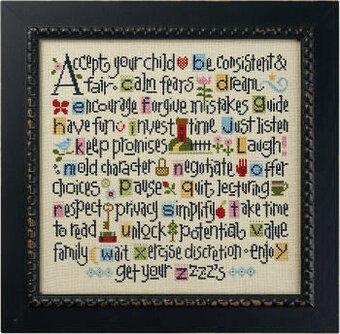
Parenting is a tough job, but it’s also one of the most rewarding. Raising children to be happy, healthy, and successful adults requires patience, dedication, and a willingness to learn. In this article, we’ll cover the A-B-C’s of parenting – tips and techniques for raising children that will help you become the best parent you can be.
A is for Attention
Children need attention from their parents. They crave it, and they thrive on it. The amount of attention a child needs varies depending on their age, but it’s important to make time for your child every day. Here are some tips for giving your child the attention they need:
Listen to your child: Give your child your undivided attention when they speak to you. Put down your phone, turn off the TV, and really listen to what they have to say.
Play with your child: Take time out of your day to play with your child. Get down on their level and play games, read books, or do puzzles together.
Show affection: Hug your child, kiss them, and tell them you love them. These simple gestures can go a long way in making your child feel loved and secure.
B is for Boundaries
Children need boundaries. They need rules and guidelines to help them understand what is expected of them. Setting boundaries can be challenging, but it’s important to be consistent and firm. Here are some tips for setting boundaries:
Set clear expectations: Let your child know what is expected of them. Be clear and concise, and make sure they understand the consequences of not following the rules.
Be consistent: Follow through on consequences if your child breaks the rules. Consistency is key to helping your child understand the importance of boundaries.
Stay calm: It’s easy to get frustrated when your child doesn’t follow the rules, but it’s important to stay calm. Take a deep breath and remember that your child is learning.
C is for Communication
Effective communication is essential for successful parenting. It’s important to talk to your child in a way that they can understand, and to listen to what they have to say. Here are some tips for effective communication:
Use age-appropriate language: Make sure you are using language that your child can understand. Avoid using complex words or phrases that may confuse them.
Be a good listener: Give your child your full attention when they are speaking to you. Encourage them to share their thoughts and feelings with you.
Use positive language: Instead of saying “don’t do that,” try saying “let’s do this instead.” Positive language can help encourage good behavior.
D is for Discipline
Discipline is an important part of parenting, but it’s important to approach it in a positive way. Discipline should be focused on teaching and guiding your child, rather than punishing them. Here are some tips for positive discipline:
Use natural consequences: Let your child experience the consequences of their actions. For example, if they refuse to wear a jacket, they will feel cold.
Provide alternatives: Instead of saying “no,” provide your child with alternative options. For example, if they want to play with a toy that is not appropriate, offer them a different toy to play with.
Use positive reinforcement: Praise your child when they do something good. Positive reinforcement can be a powerful motivator for good behavior.
E is for Empathy
Empathy is an important trait for both parents and children. It’s the ability to understand and share the feelings of others.
Leave a Reply